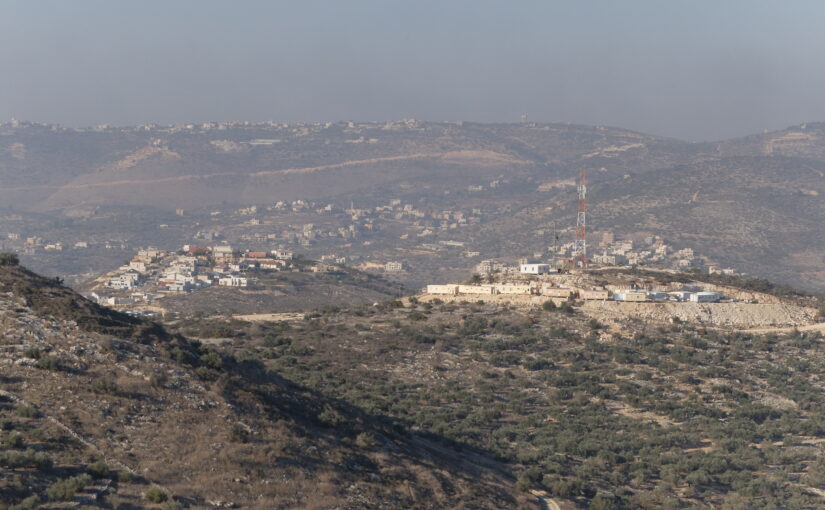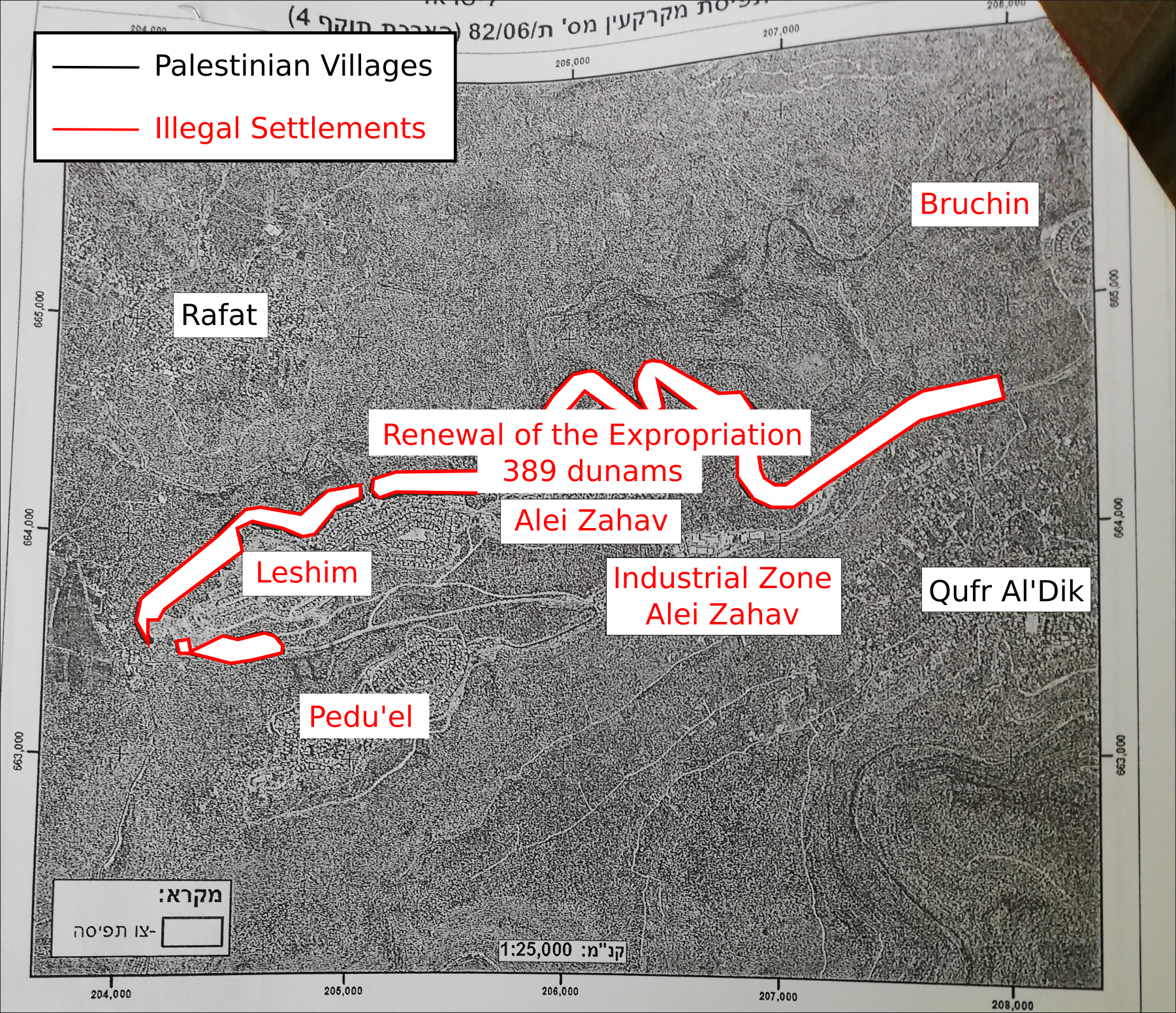Tag: Land confiscation
-

West Bank: record amount of land stolen by Israel. More acres annexed since Oct. 7 than in 30 years
Beit Lid – North West Bank “Since October 7, while all eyes are on Gaza where they are destroying everything, the Israelis have seized the highest number of dunams ever here in the West Bank. “In one year they declared more hectares as ‘Israeli land’ than they had ever declared in the past 30 years,”…
-

Report on Land Confiscations by the Israeli Army in Salfeet and Qalqilya Area
The Israeli Occupation Forces have recently announced a new series of land seizures in eleven villages in Salfeet and Qalqilya, Occupied Palestine, a move that will affect almost 1 million square metres of Palestinian land.
-

Israeli military destroys agricultural lands in Gaza
3rd of March 2016 | International Solidarity Movement, al-Khalil team | Gaza Strip, occupied Palestine At around 9am on Thursday, the 31st March, four Israeli bulldozers entered the Gaza Strip at El Fakhuri. They came in order to destroy agricultural lands located near the border, once again violating the indefinite truce that ended the 2014 Israeli…
